Why do you fly from me?
Vom hören in der Echokammer
10 Jahres–Savvybrations & Lange Nacht der Ideen 08.12.2019 16:00
Mit Jasmina Al-Qaisi, Llorenç Barber & Montserrat Palacios, Stella Chiweshe, Richard Crow, Eiliyas, Chiara Figone, Monilola Ilupeju, Sofia Jernberg, M3NSA & The Mean Weil, Jasmina Metwaly, Nkisi, Pınar Öğrenci, Rachel O'Reilly & Que Kenny, und anderen.
Programme
| 16:00 | SAVVY Team Begrüssung |
16:15 | Bonaventure Soh Bejeng Ndikung Eröffnung |
16:25 | Monilola Ilupeju Pacer Performance |
16:55 | Jasmina Al-Qaisi Immeasurably Growing Here. A Rhizomatic Confession TEXT Und Klang |
17:10 | Rachel O’Reilly and Que Kenny Double Missions Fespräch und Filmausschnitte |
17:40 | Richard Crow A Human Voice That Was Addressing Itself for the First Time (Letter To René Guilly) PERFORMANCE |
| 17:55 | Pınar Öğrenci Resistant Forest PERFORMATIVE Lesung |
| 18:25 | Eiliyas Improvisation PERFORMANCE |
19:00 | Break |
19:20 | Llorenç Barber & Montserrat Palacios Vapor y Vampiro PERFORMANCE |
| 20:00 | Pedro Oliviera Vortrag |
20:30 | Jasmina Metwaly Two Uniforms and one Costume. On Filming, Tailor Making: What to Duplicate and How and Where to Replicate Vortrag |
21:00 | Richard Crow Radio Tarahumara (Tutuguri) PERFORMANCE |
21:10 | Break |
21:40 | Stella Chiweshe Souls Without Bodies KONZERT |
22:10 | Nkisi Cosmic Rhythm, Skin of Time LISTENING SESSION |
22:40 | Sofia Jernberg One Pitch: Birds for Distortion and Mouth Synthesizers KONZERT |
23:20 | Chiara Figone Echoing Palimpsest Lesung |
| 23:35 | M3NSA & The Mean Weil KONZERT |
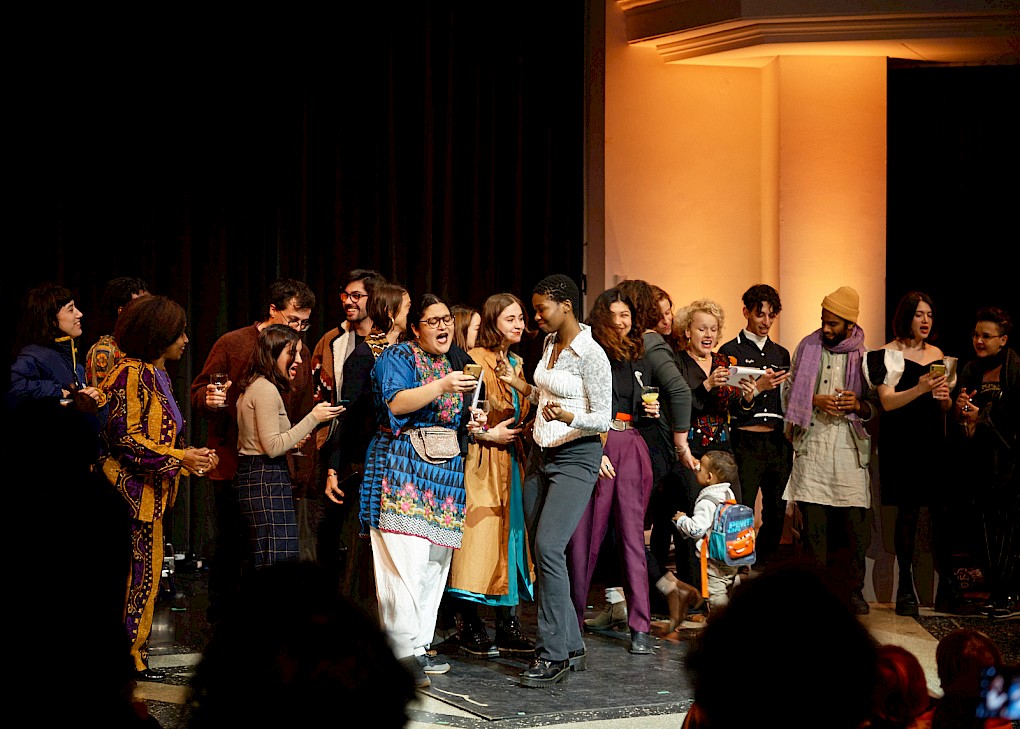
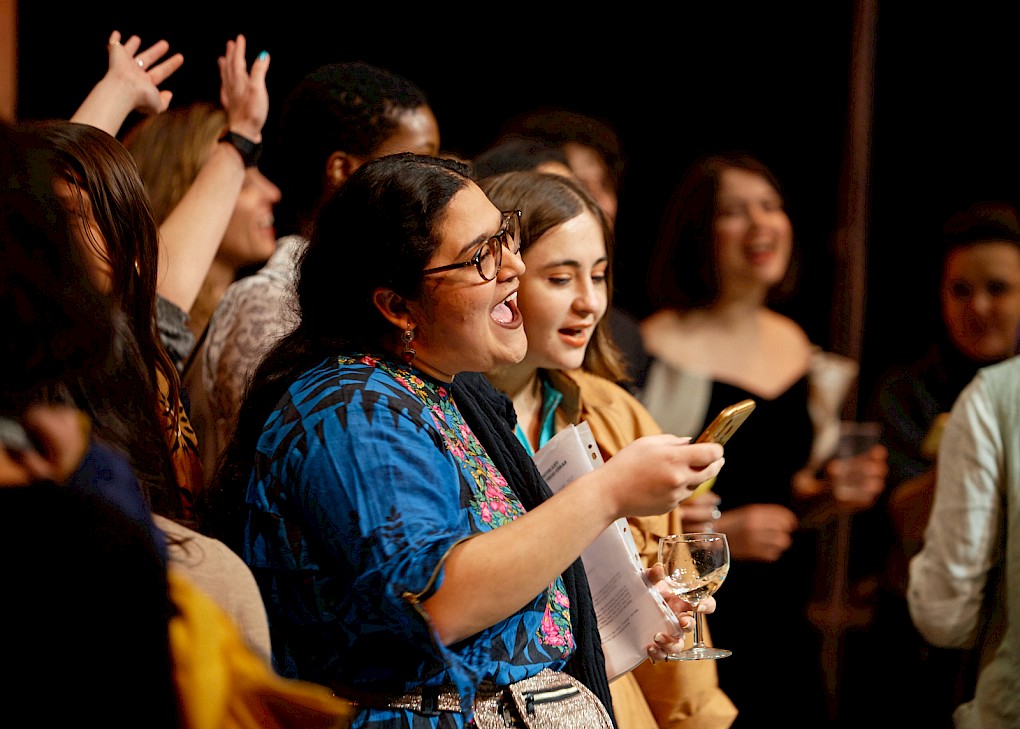
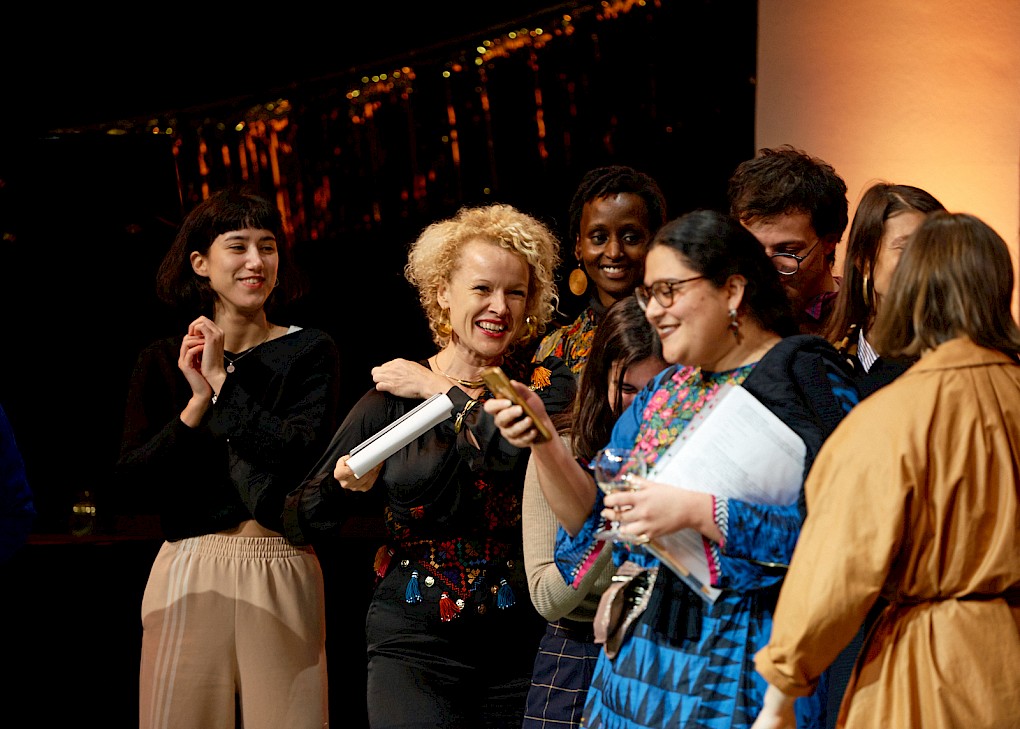
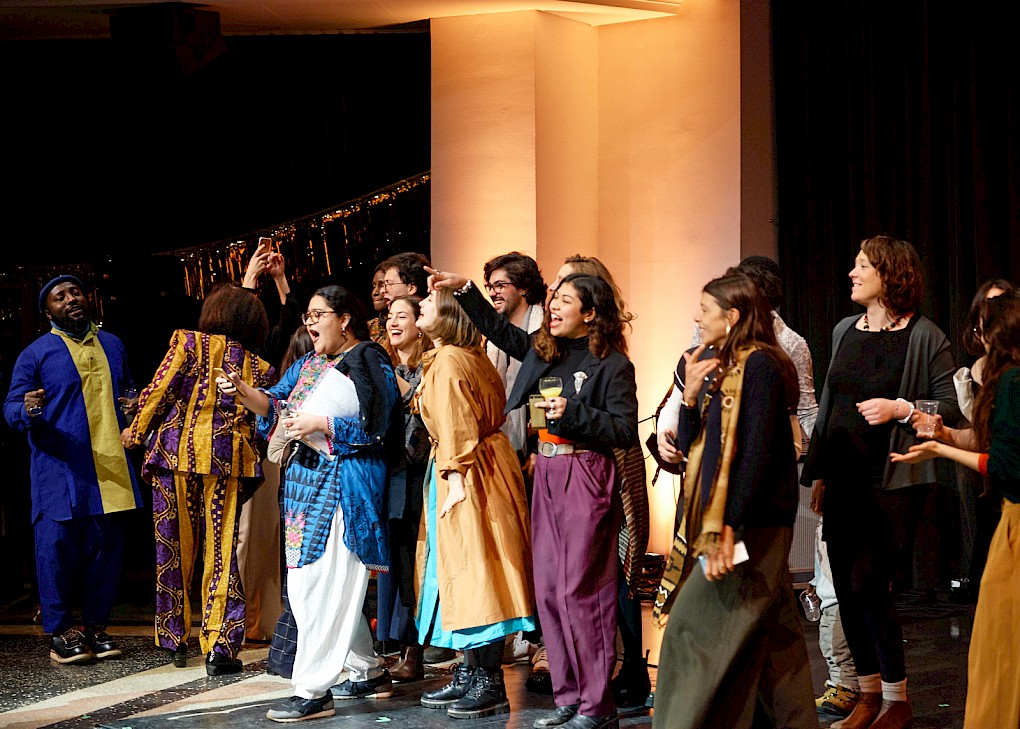
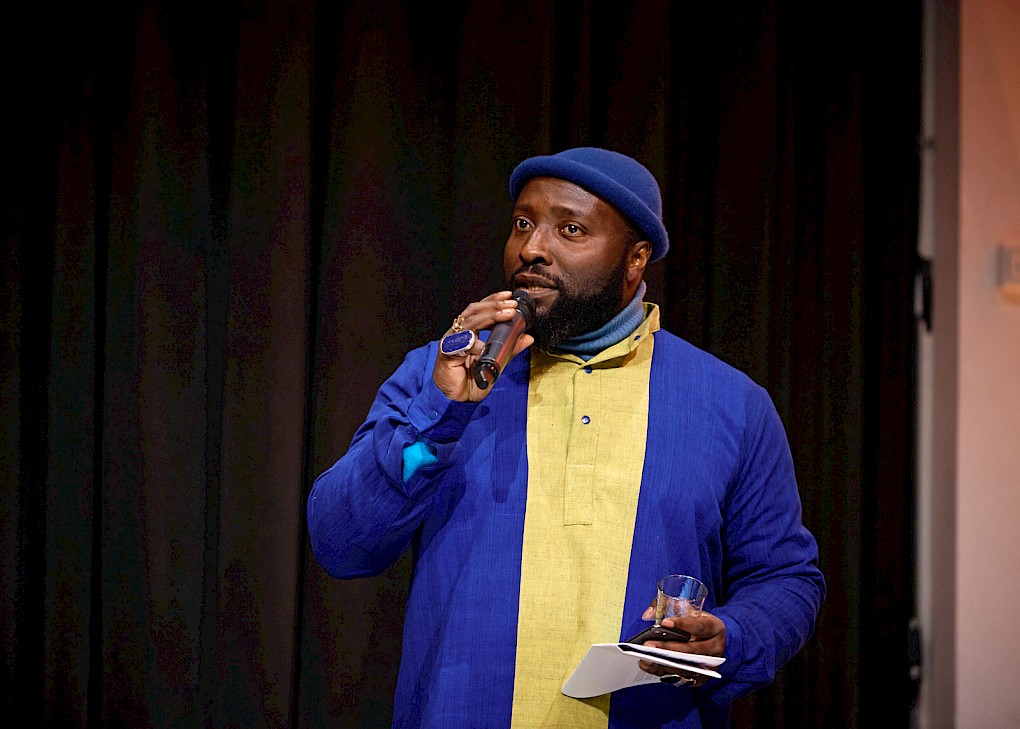
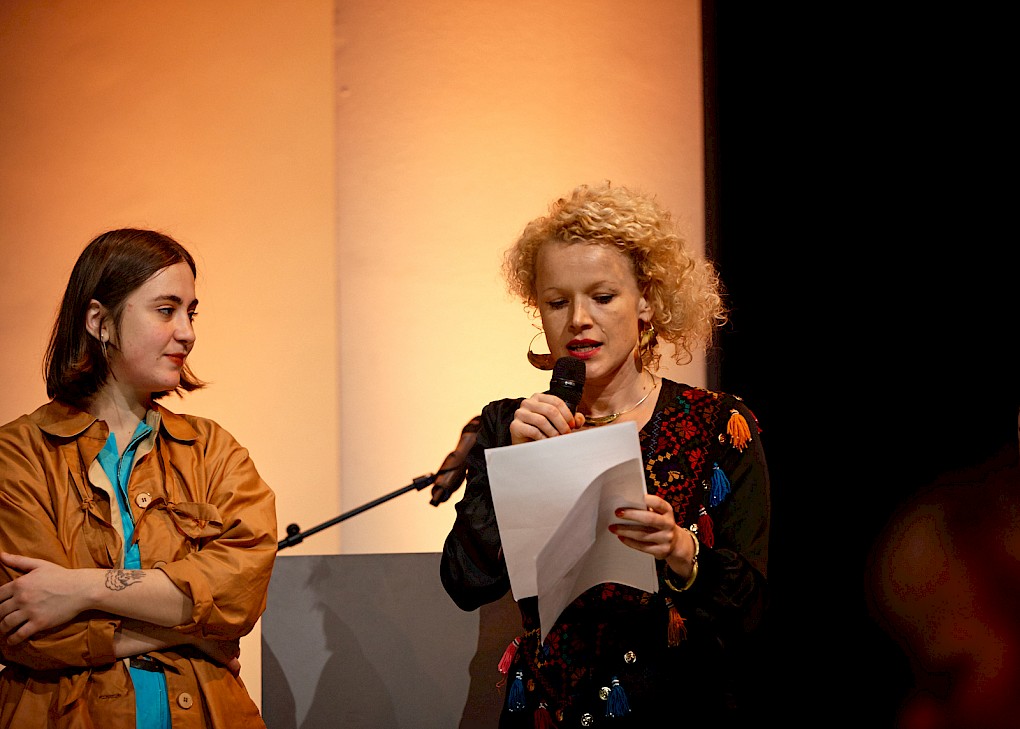
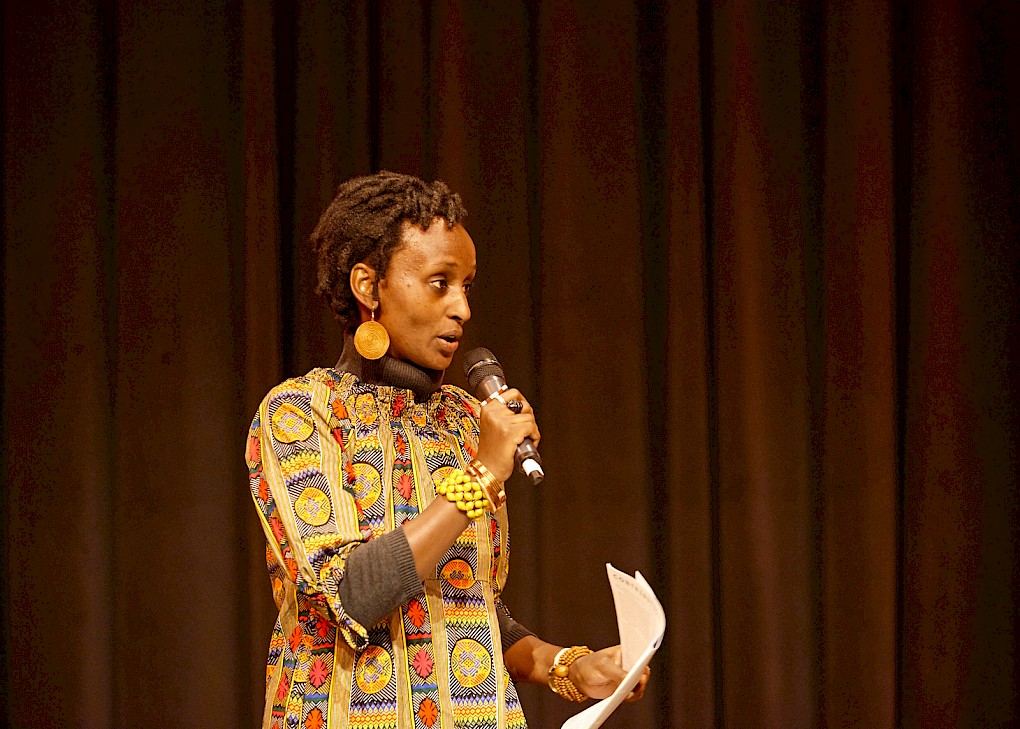
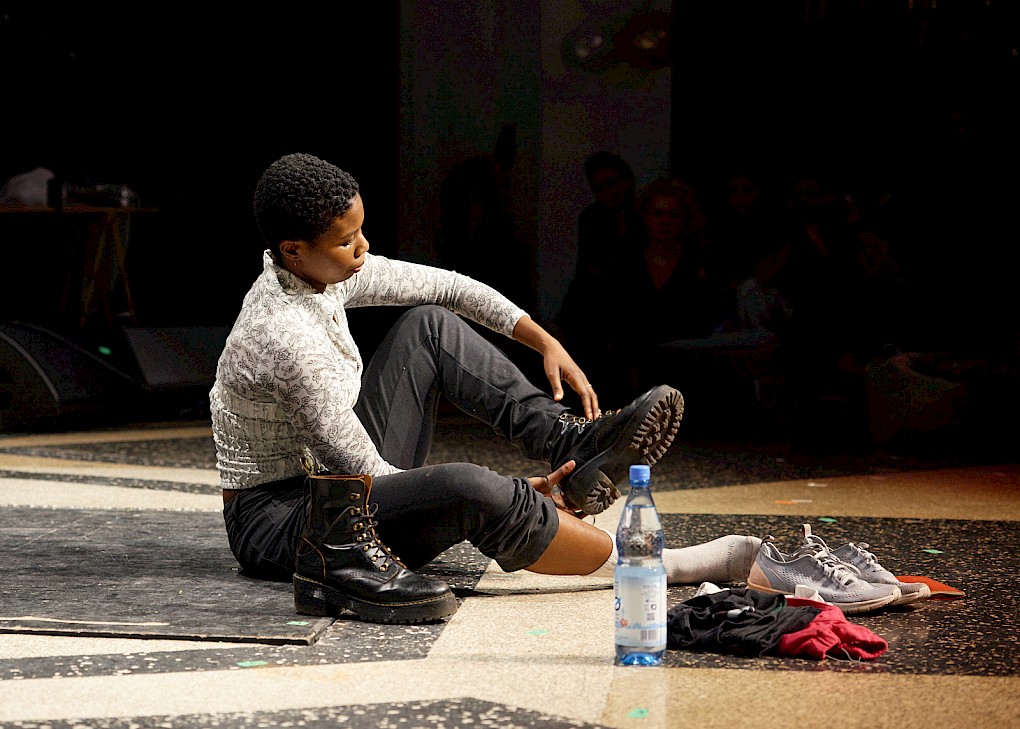
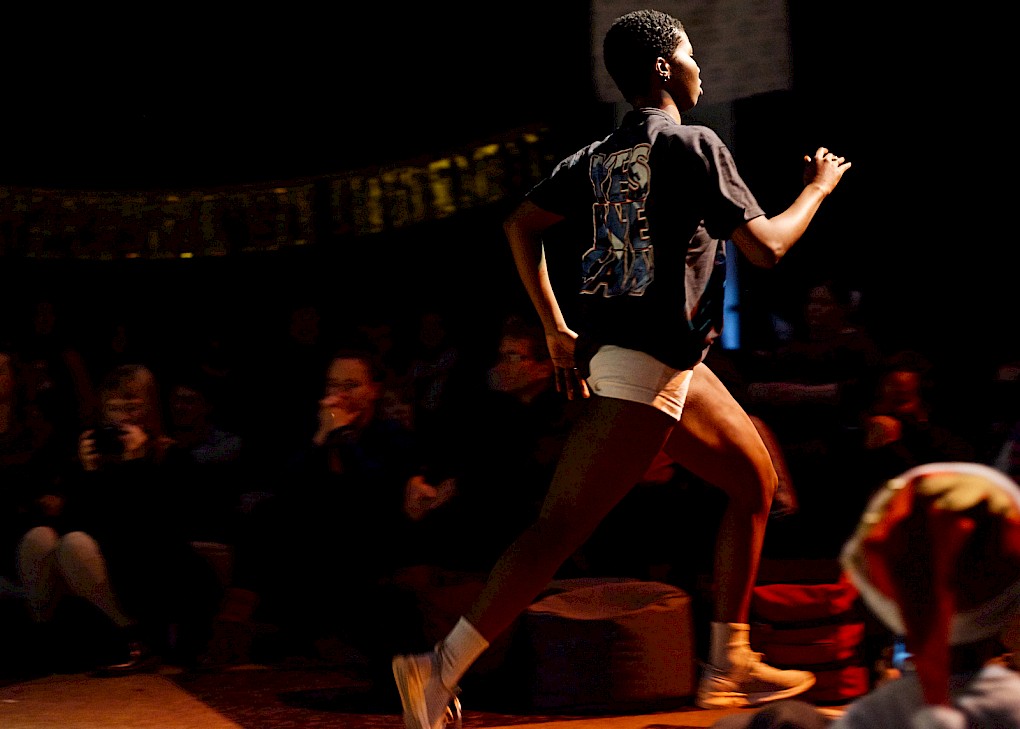
flowers bloom
their tom tom sun
heads raising
little steel pan
petals to the music’s
doom
as the ping pong
dawn comes
riding
over shattered homes
and furrows
over fields
and musty ghettos
over men now…
making
with their
rhythms some-
thing torn
and new
Another decade is closing its full circle and so does the first decade of SAVVY Contemporary. We would like you to join us for the beginning of our 10th anniversary SAVVYbrations.
With WHY DO YOU FLY FROM ME? Listenings in the Echo Chamber, we propose a day of gathering around and amidst performances, lectures and listenings in order to sound echoes for orientation and navigation of a history of voice and noise, of past and future power. We want to understand our own work, and our own thinking of, through and sometimes against the world, as a way of receiving echoes and sending them on, of being an obstacle in the even flow of sound and reverberations initiated long before our own breathing in order to listen closely to what was and projecting carefully into what might be. We invite you to listen with us along the echoes that have accompanied us since the inception of SAVVY Contemporary, to which we return for clarity and opacity, for solace and stirring. Let us listen – between sound and silence – to the echoes we have caught and sent further along, sometimes changing their initial trajectory. To do so, we invite you and other guests who have been with us (in mind or in practice) in the last 10 years and with whom we have engaged intensely in our work and being – in person, on the page or through sound.
Earlier this year, we dedicated the first part of the Long Night of Ideas to thinking about Partition and Partitura. While focussing on what it is that drives the political impulse to divide and rule, we also thought about what other present we could imagine if we turned partition on its head. We asked: What if partitions just existed as musical scores, spaces of sounds, transnational sounds, sounds that have forgotten and overcome nations, that unfurl in porous interstices? If a partition becomes a partitura, can it also just exist as a polyphony?
For the second part of the Long Night of Ideas and as a prelude to our 10th anniversary celebration, SAVVYbrations, we propose to sound echoes for orientation and navigation of a history of voice and noise, of past and future power. We want to understand our own work, and our own thinking of, through, and sometimes against, the world as a way of receiving echoes and sending them on, of being an obstacle in the even flow of sound and reverberations initiated long before our own breathing in order to listen closely to what was and projecting carefully into what might be.
We invite you to listen with us along the echoes that have accompanied us since the inception of SAVVY Contemporary, to which we return for clarity and opacity, for solace and stirring. Let us listen —between sound and silence— to the echoes we have caught and sent along, sometimes changing their initial trajectory. To do so, we invite you and other guests who have been with us over the last 10 years and with whom we have engaged intensely in our work and being – in person, on the page, or through sound.
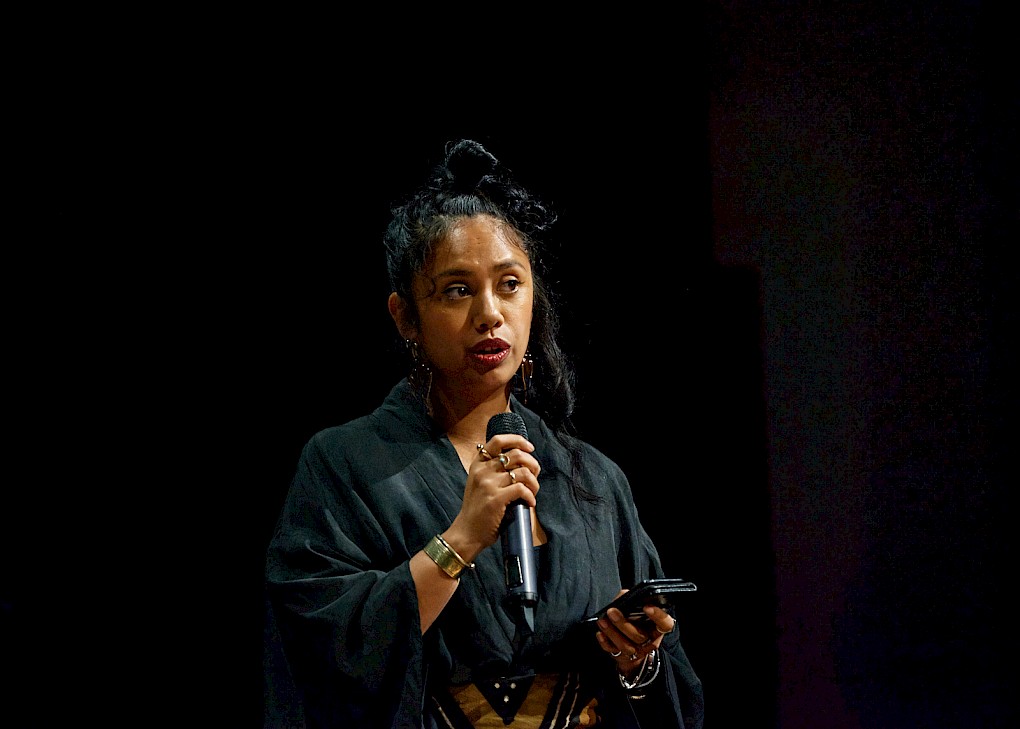
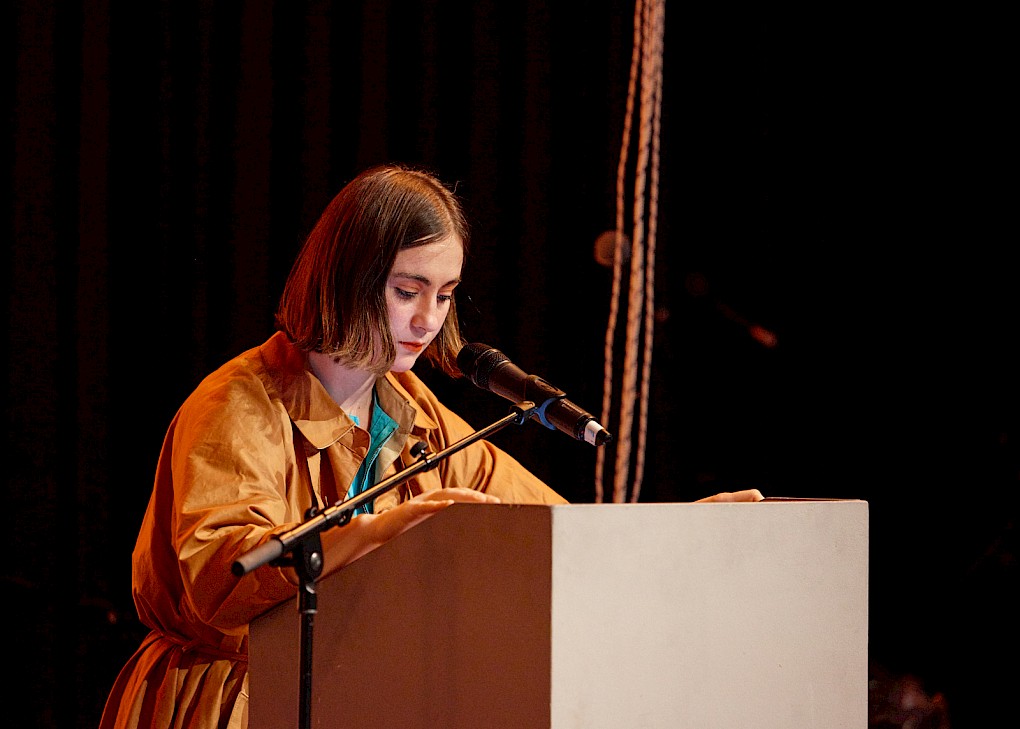
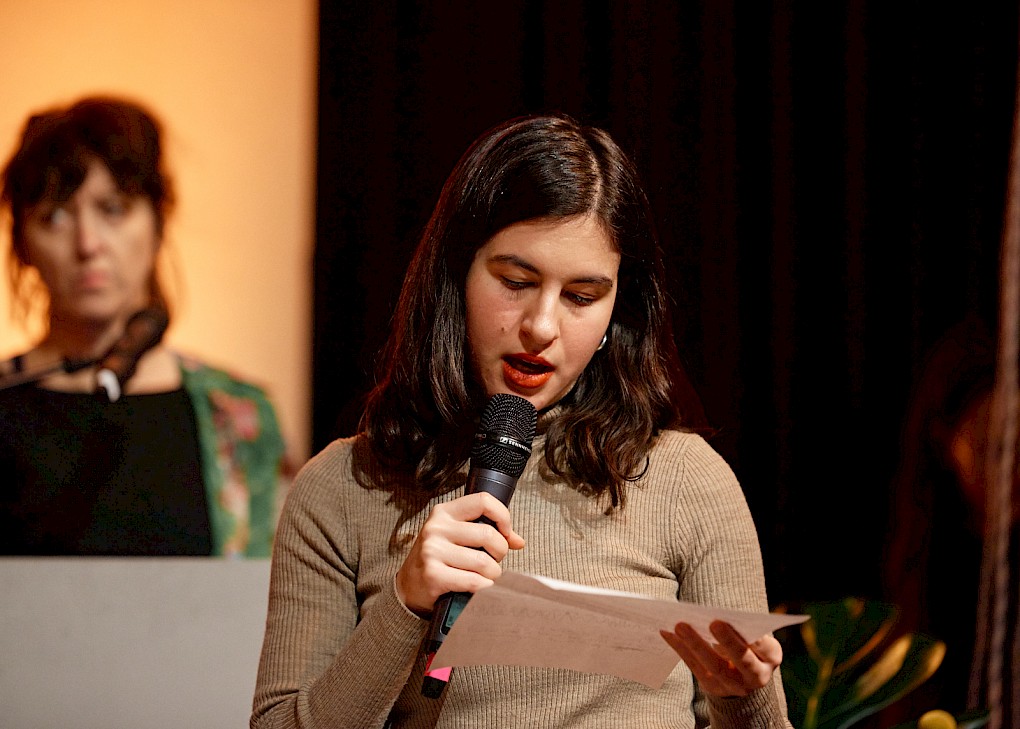
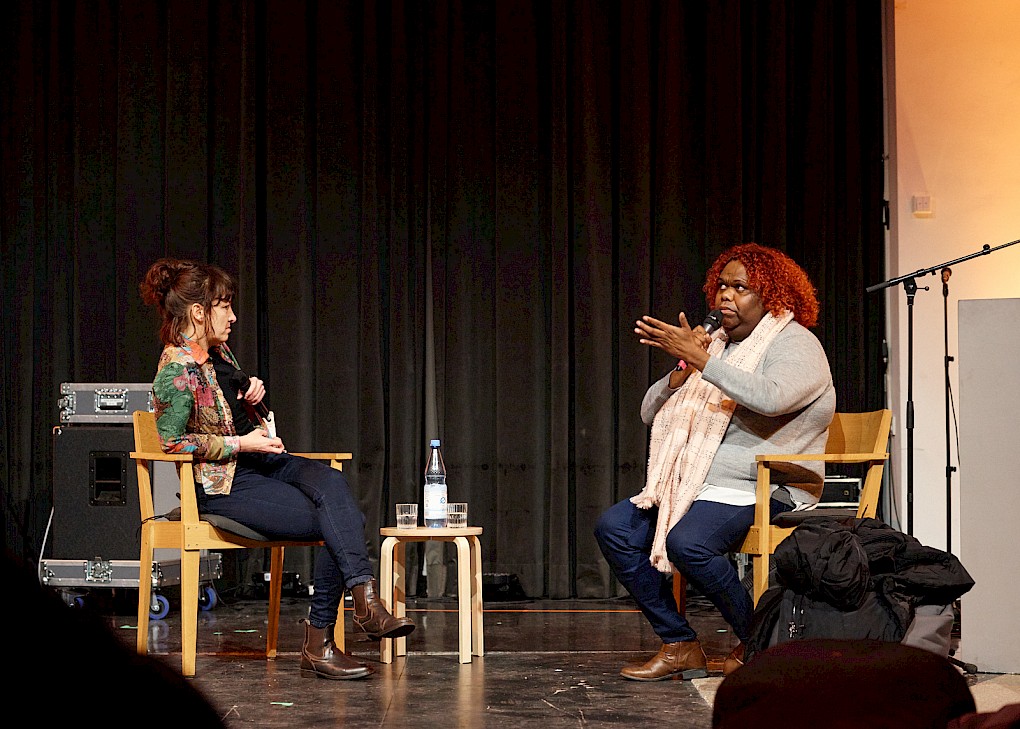
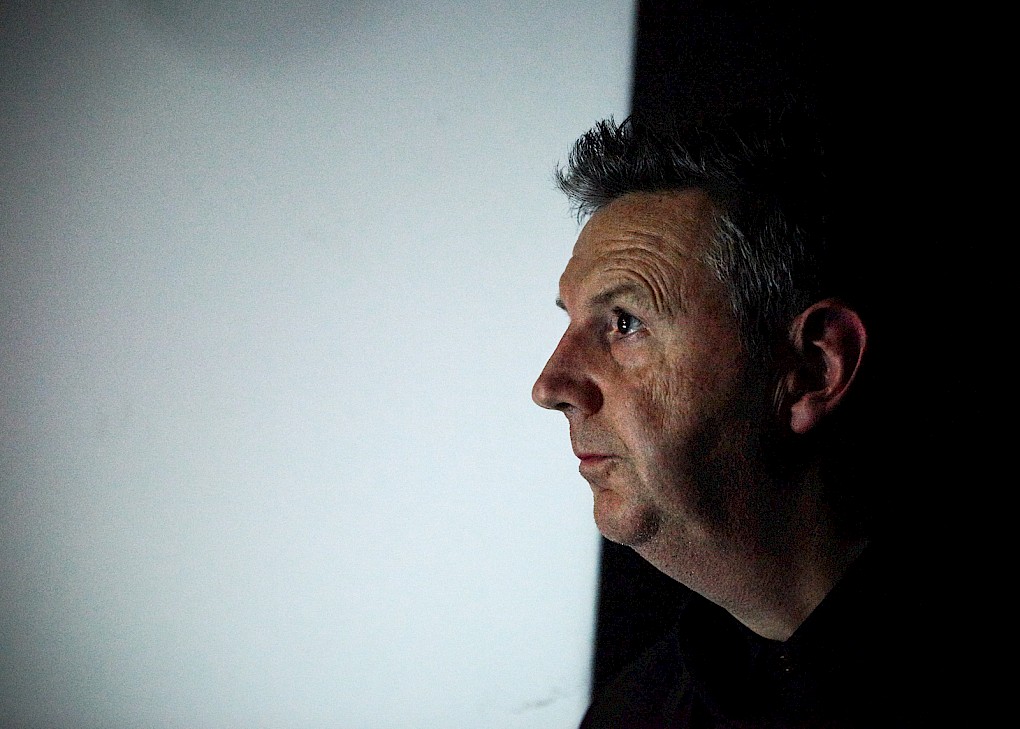
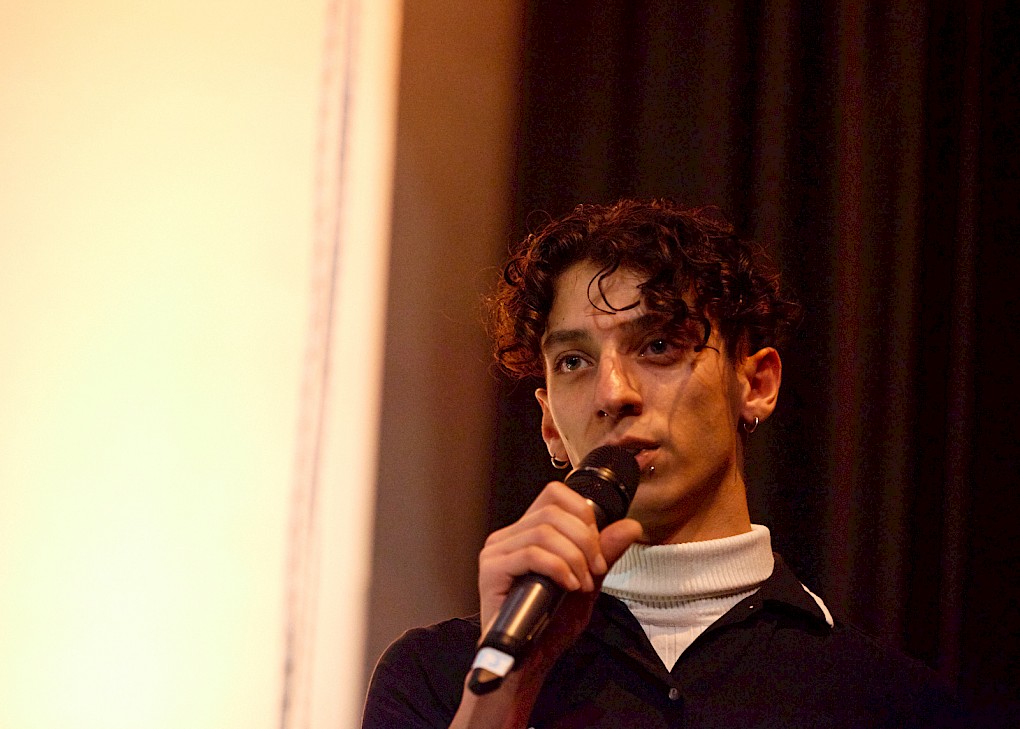
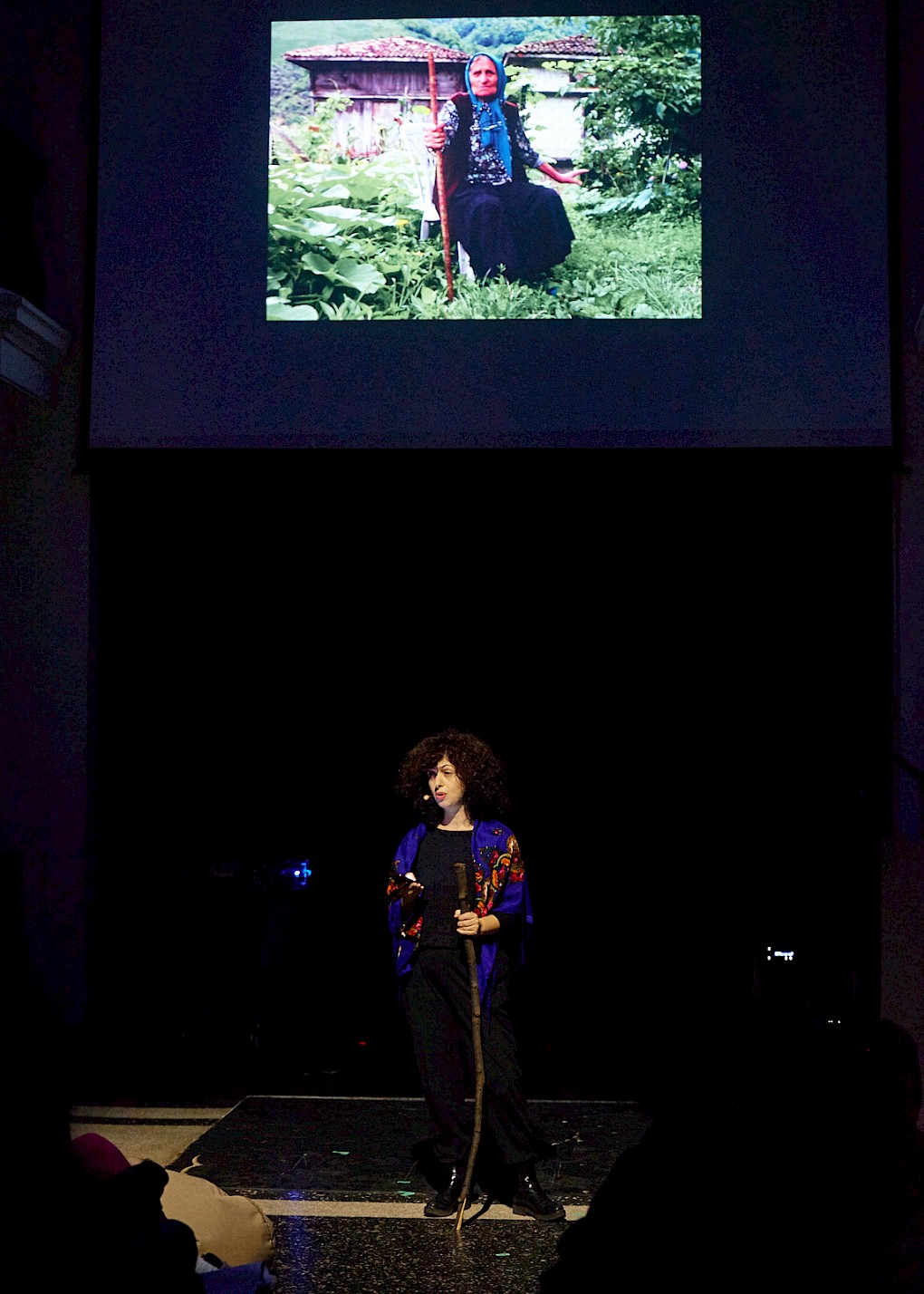
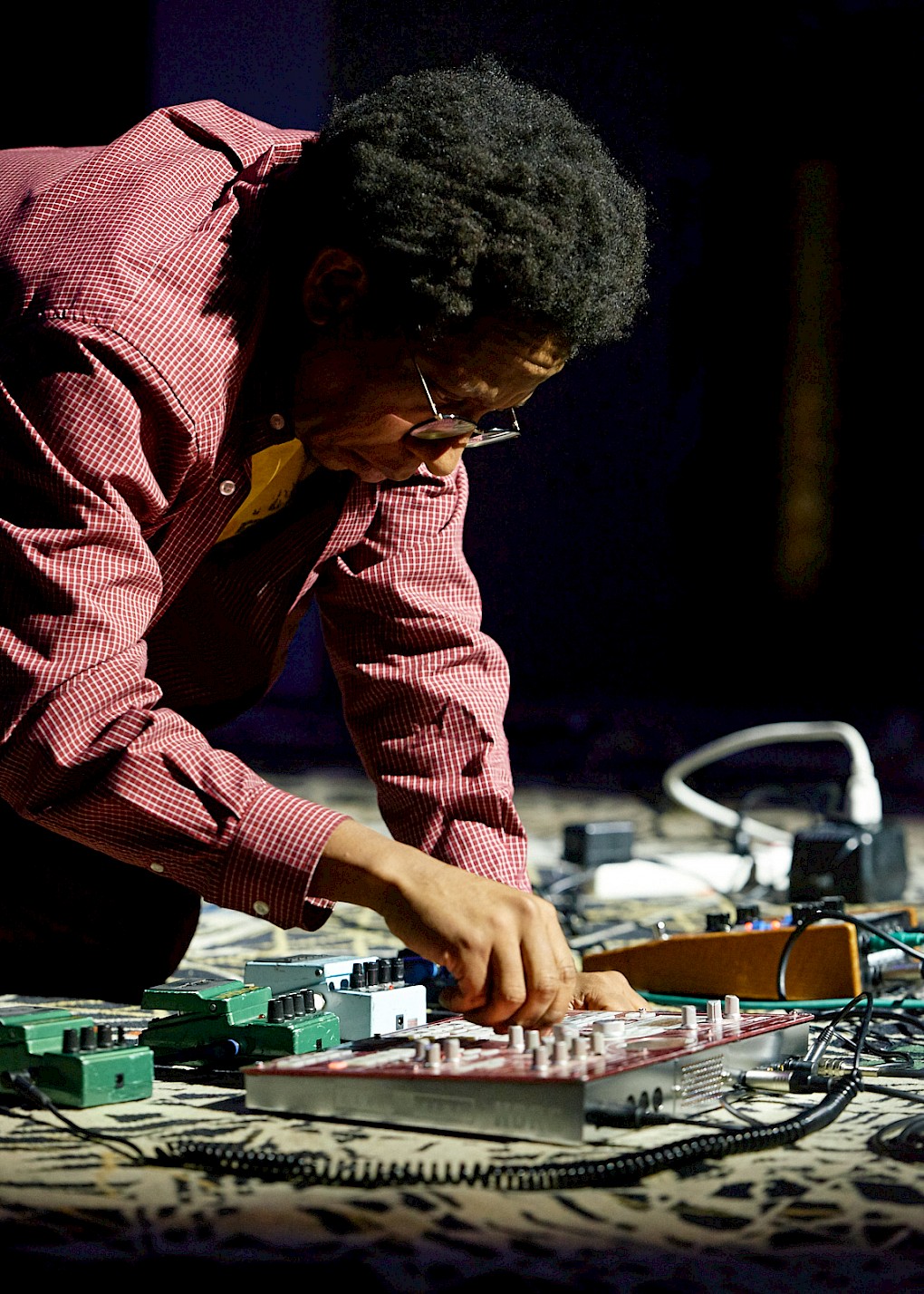
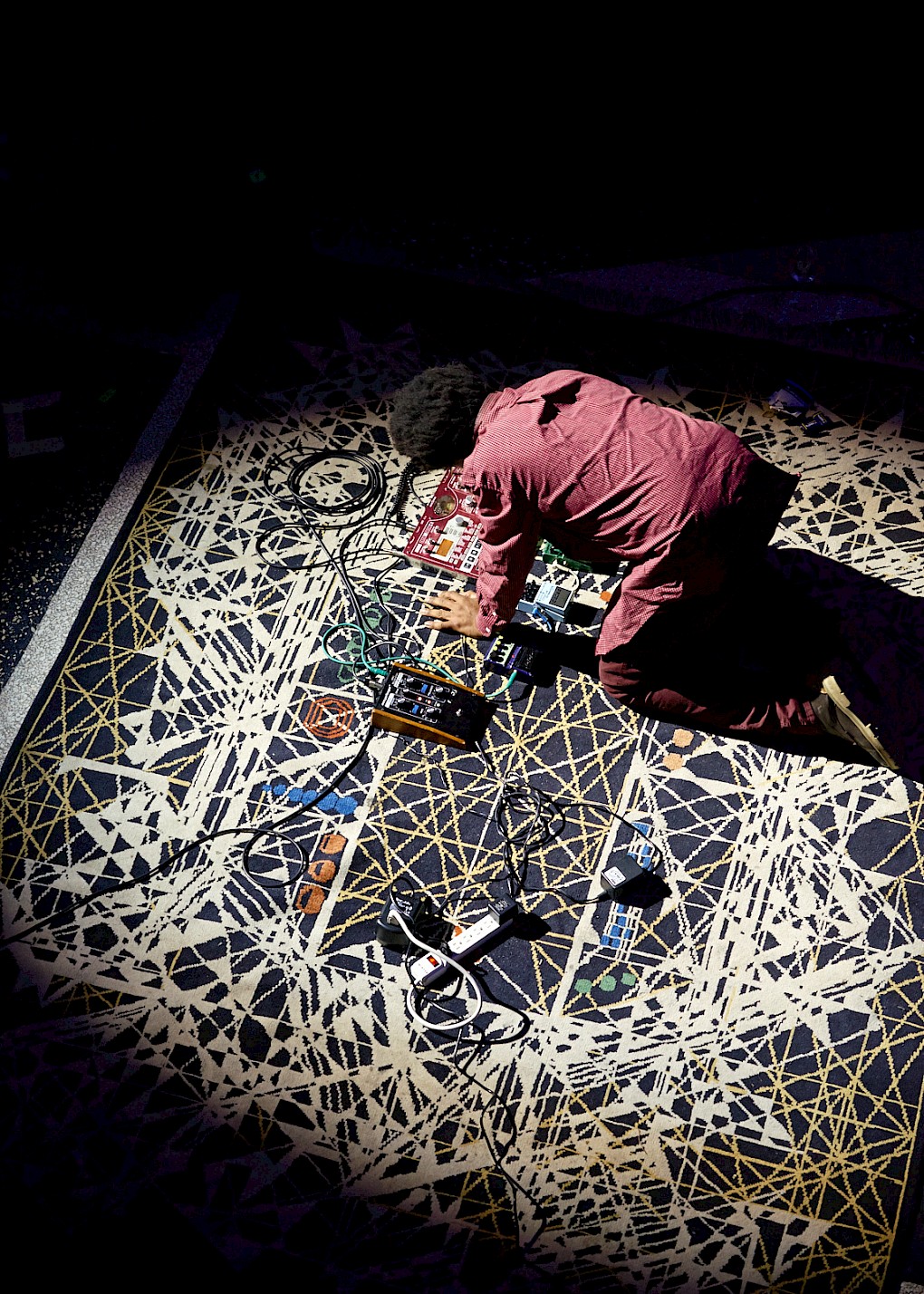
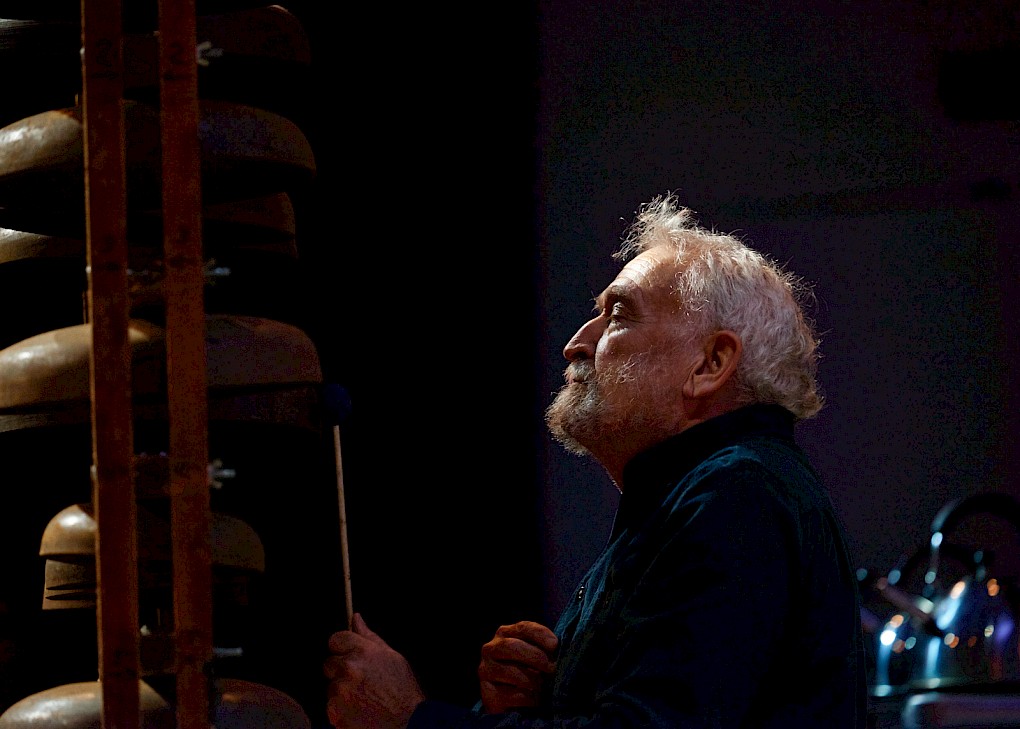
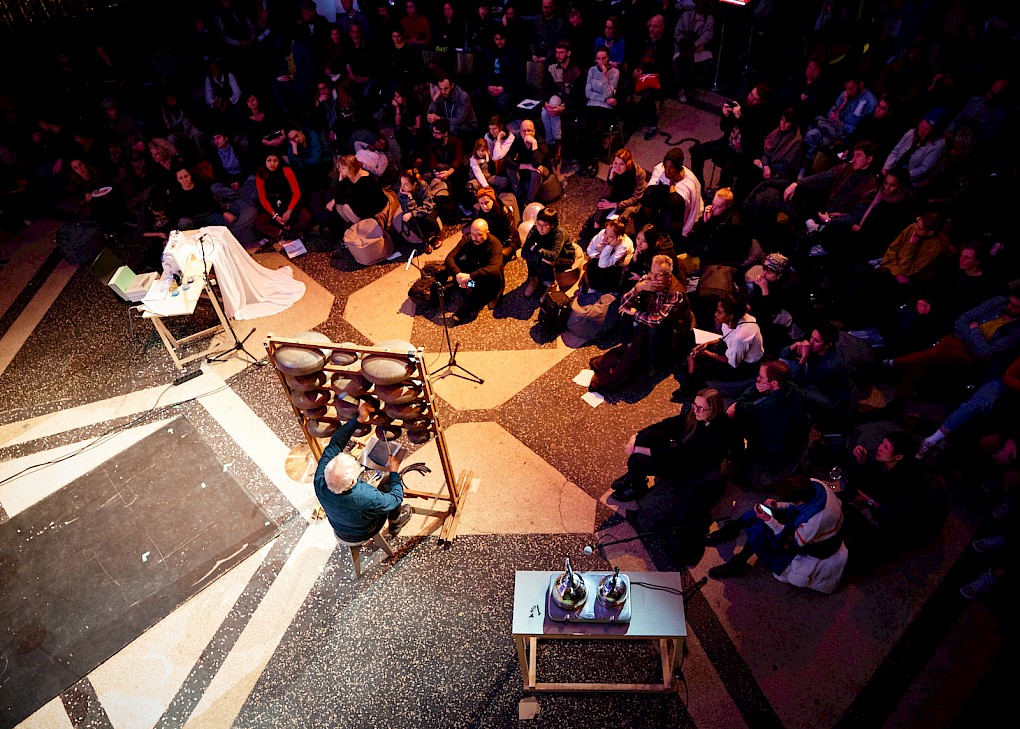
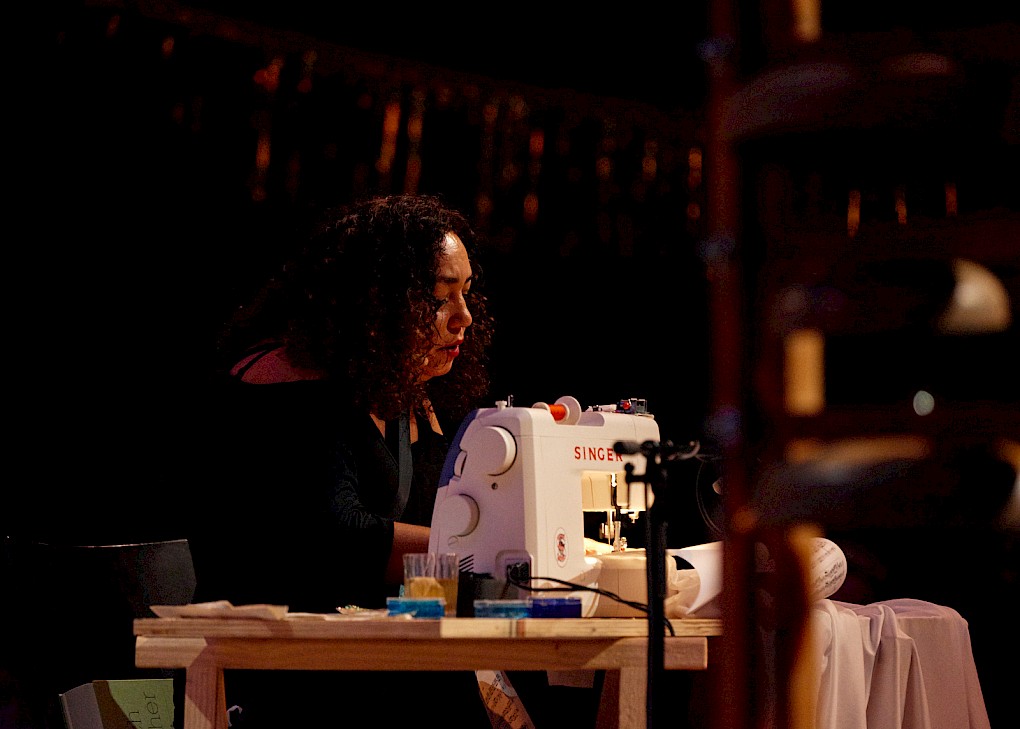
Do you remember the moment you heard an echo for the first time? Was it truly a new experience or a reverberating memory itself, a memory of the heartbeat you shared for the very first months of your existence? Was it urban noises bouncing off of concrete walls, or did someone tell you to shout something from a mountain top into the void — something poetic maybe, or a profane Hallo-o-o? Was it augmented silence that made you hear clearly the things gone that are not quite gone? Have you ever longed and shouted for an echo and have no sound returned to your ear?
There is something extremely powerful about echoes: their magnitude, their capacity to transmit information through time and space; but also to disorient, reach out, cut and stay. Echoes are —in fact— informants of the past. They instigate a memory and recalibrate our attention to another temporality, subtly entering our senses through a constant mode of becoming.
When giving that attention to listening to echoes, one's experience of time is complexified and activated to hearing more than one source, listening to everything at the same time, and hearing nothing at all. This mere manipulation diffuses dominant time and, in echoes, becomes a course of refusal of its rhythm seeking to "represent a sound or a signal that has already been delayed and is in decay. There is a creative tension here between that which foretells and that which has been told.” [2] To echo is to reflect, to be and sense in space and time, to listen in decay, in closeness and distance, in navigation and disorientation, this modulation giving us the possibility of "a redistribution of times that invents new capacities of framing a present." [3] When amplified, an echo can even cut through other signals, diverting their directions, and creating emancipatory moments where more than one signal meets. “This is what emancipation means," writes Jacques Rancière, "the practice of dissensus, constructing another time in the time of domination, the time of equality within the time of inequality.” [4]
In revisiting what has happened in the past ten years with and around us, we migrate into the future and ask, “How does echo become more than decaying repetition?” [5] And how can echo enable a reinforcement of the constant gesture of becoming? Since "every human being has a gesture, and that gesture explains your life history in a way — the way you use the body. There are thousands of gestures to explain a culture of a society, (...) and the relation to sound, a fantastic tool to become liberated and find yourself." [6]
Our work, our culture, as well, has been more than one gesture, or prolonged decomposition, and together with artists, poets, thinkers, cooks, archivists, and many more, it took and takes several dozen people involved within the space on a daily basis to signal those echoes, to live them and relive them, tell and retell, sound and re-sound, and constantly fetch to re-fetch echoes upon which SAVVY Contemporary's philosophy has been and is being built. And which also consists of the impulse to resist ongoing, reverberating violences. The German word for echo, Widerhall, entails a „wider“ – an against, a contra as in Widerstand (resistance) or Widerpart (opponent) – and sonically a „wieder“ – an again. Where the German adds an “e” to shift the meaning, the English adds the “st” from again to against. In order to produce an echo, a counterpart is needed that sound can engage with. In order to not drown in voices and noises, practices of listening with and against, of echoing out with and against are crucial.
“Such, I believe, is the implicit orchestra, of living landscapes
when consciousness sings through variegated fabrics and
alternations of mood, consonance as well as dissonance,
unfathomable age and youth, unfathomable kinships.“
–– Wilson Harris [7]
Tsitsi Jaji beautifully points out that “echo can also be seen as a sonic version of Sankofa, the bird in Akan lore. As a cultural principle, Sankofa is regularly translated as ‘go back and fetch it’ and associated with the Akan aphorism: So wo were fi na wasankofa a, yenkyi. [There is nothing wrong with learning from hindsight]." [8] The question of our contemporary world, a world shaped through diasporic experiences, is exactly to “return the past forms in new contexts,” [9] to remain in the constant state of echoing or staying in that notion of going back and returning, without trivializing the significance of being in the now.
“...but sound has its echoes
whose future is eternal.”
–– George Lamming [10]
This metaphor of the echo, as expressed and held into different lights by thinkers like Louis Chude-Sokei and Édouard Glissant, helps us understand the various ways of the past’s un-endedness, of the rippling resonances of what was and still is in our now, of the continuities that we always try to dissect and display in our work amidst the world’s totality.
Totality, the relations between all things, is described by Glissant as “tout-monde (the world in its entirety), écho-monde (the world of things resonating with one another) and chaos-monde (a world that cannot be systematized).” [11] In this totality, echoes “are at work in the matter of the world; they prophesy or illuminate it, divert it or conversely gain strength within it.” [12] As Chude-Sokei summarizes, for Glissant, echo “is metaphoric of diversity and cross-cultural interaction without the architecture of colonialism or nationalist resistance to adjudicate or authorize hearing or meaning or blending.” [13] Chude-Sokei himself describes that „the length of an echo reaches from the violence of creation [...] to its repercussions – those being the measurement in rhythm of history itself.“ [14]
So how is it possible for people sounding from within positions of privilege, from the violence in cosmopolitan centers, to listen and reverberate with people living outside of these echo chambers? What kinds of theoretical and ethical dilemmas confront cultural critics who seek to "know" the experiences of the “other?” Thereafter, how can the process of echoing become a space of collectivity?
In her rereading of the myth of Echo and Narcissus “against the grain by concentrating on Echo” [15] and her “attempt to ‘give woman’ to Echo, to deconstruct her out of traditional and deconstructive representation and (non)representation, however imperfectly,” [16] Gayatari Chakravorty Spivak works out that “even when repeating the exact words of Narcissus, there is something that does not pass between them. The repetition is not a response to Narcissus’ question. At the same time, the change of the form may indicate that Echo – or the “Other”– that cannot be an exact copy of the self, the Narcissus.” [17] In her analysis of Pan-African solidarity through the music, Tsitsi Ella Jaji actualizes Spivak’s reading of Echo, claiming that it “shows that conversations between subjects lodged in their own historical and psychic contexts may get jammed, but narrative and poetry have the potential to decode and retransmit these signals.” [18]
To carry these narratives and poetry in chambers of solidarity beyond a point of a lingering, haunting past, and through that to hold and sound echoes as tools of power and not of impotence is what we were blessed with in our first decade and is what we wish for in those to come.
Together.
Hallo?
Art will never be reborn except from amidst a general anarchy –
it will be epic no doubt, because affliction will have simplified a great many things... It is therefore quite useless for you to envy Leonardo or Bach. Greatness in our times must take a different course. Moreover, it can only be solitary, obscure and without an echo…
(but without an echo, no art).
Thought makes music.
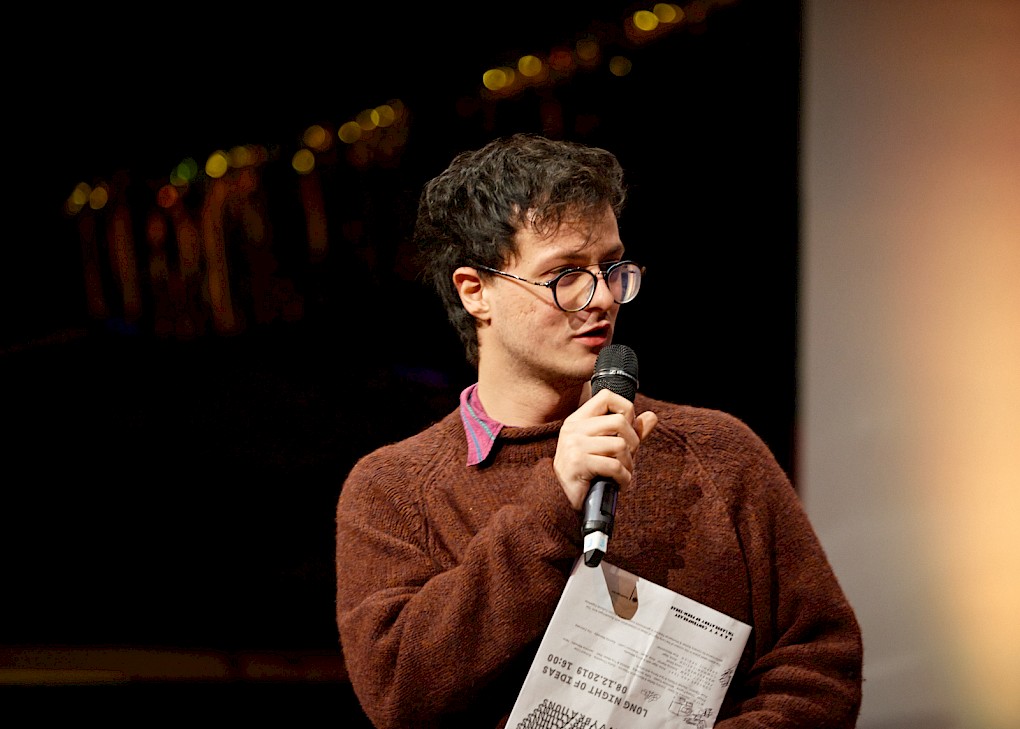
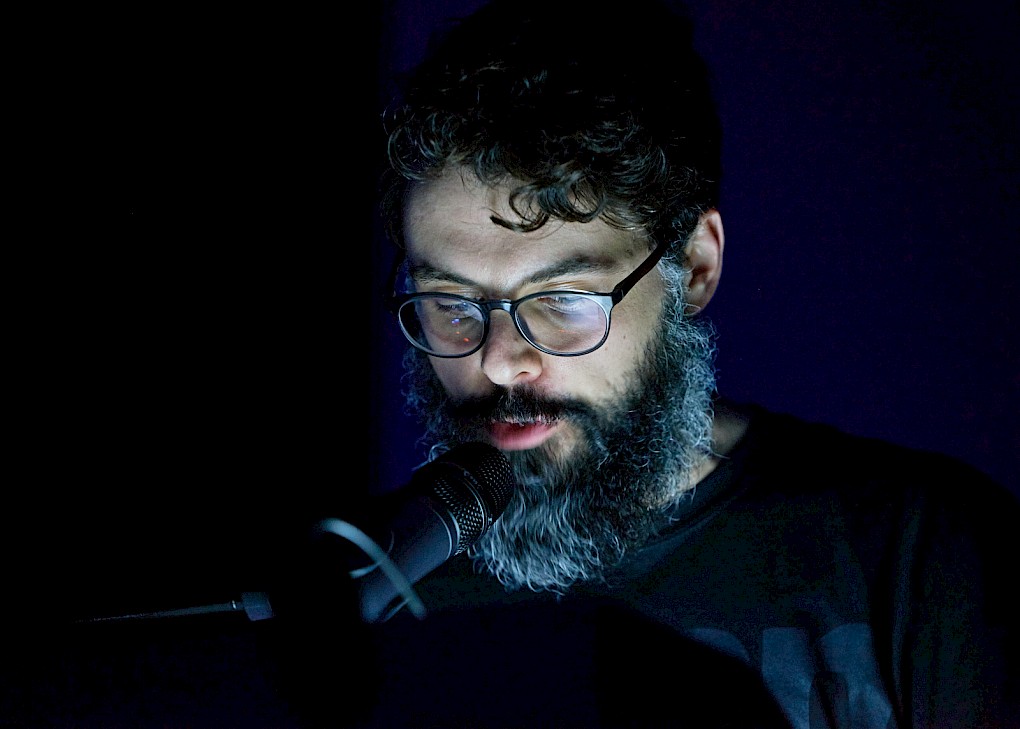
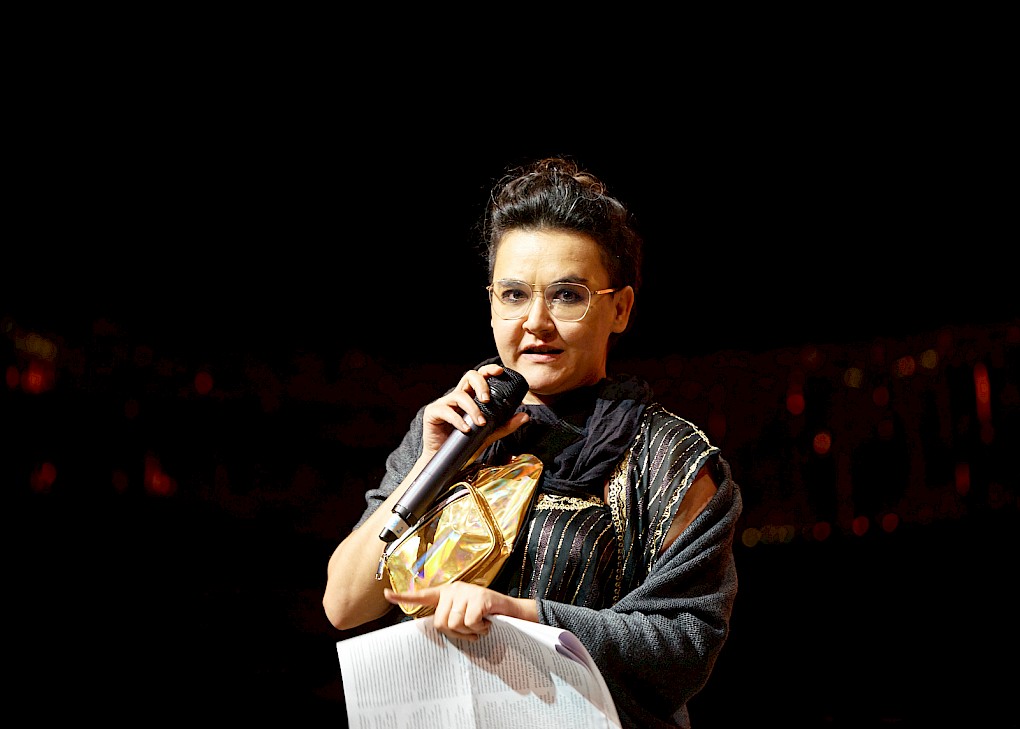
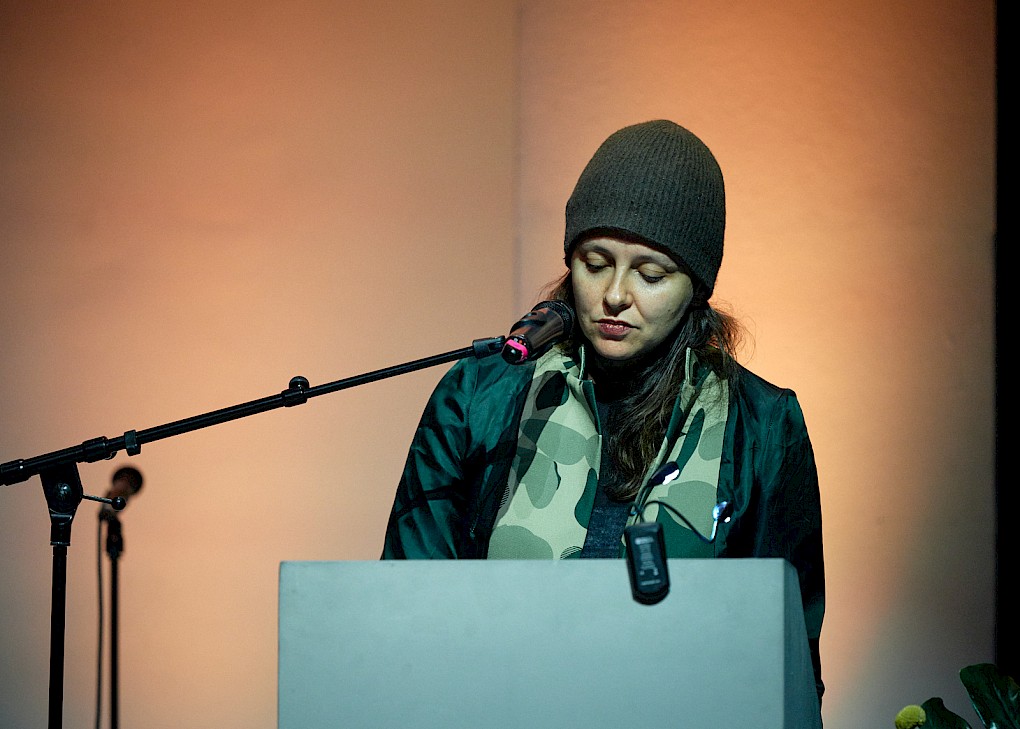
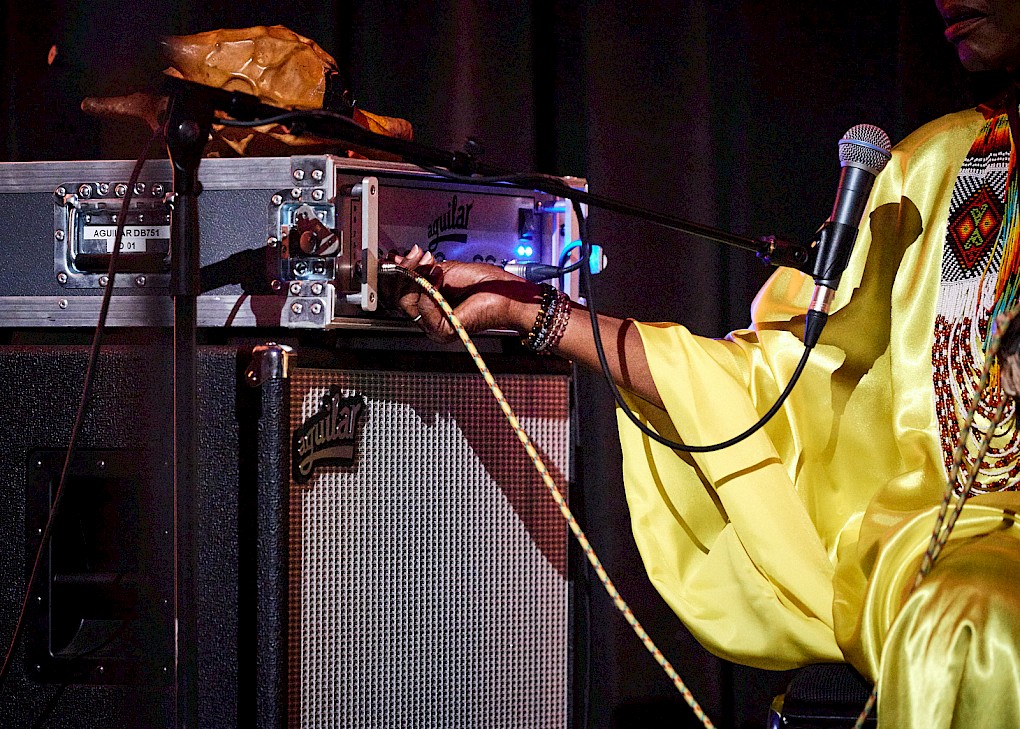
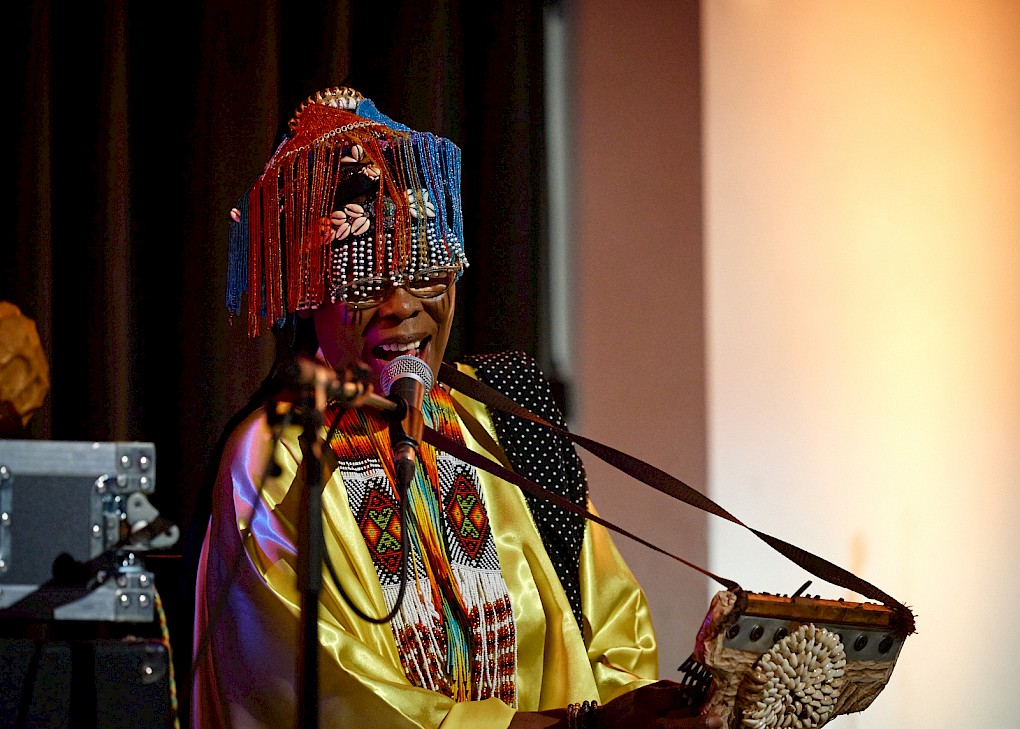
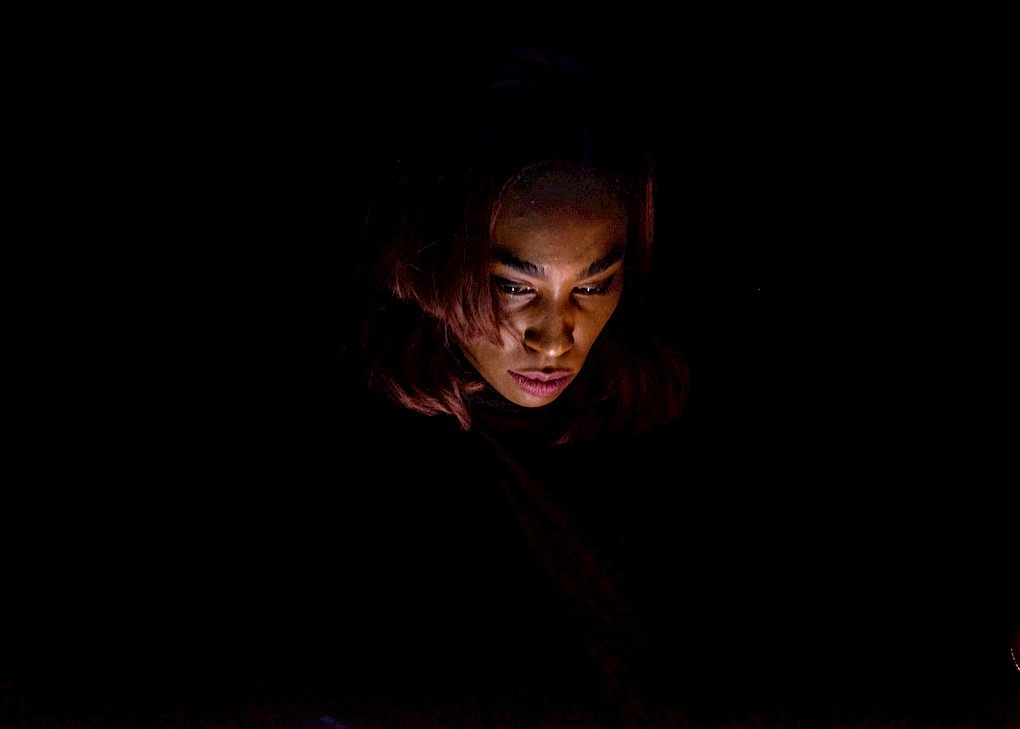
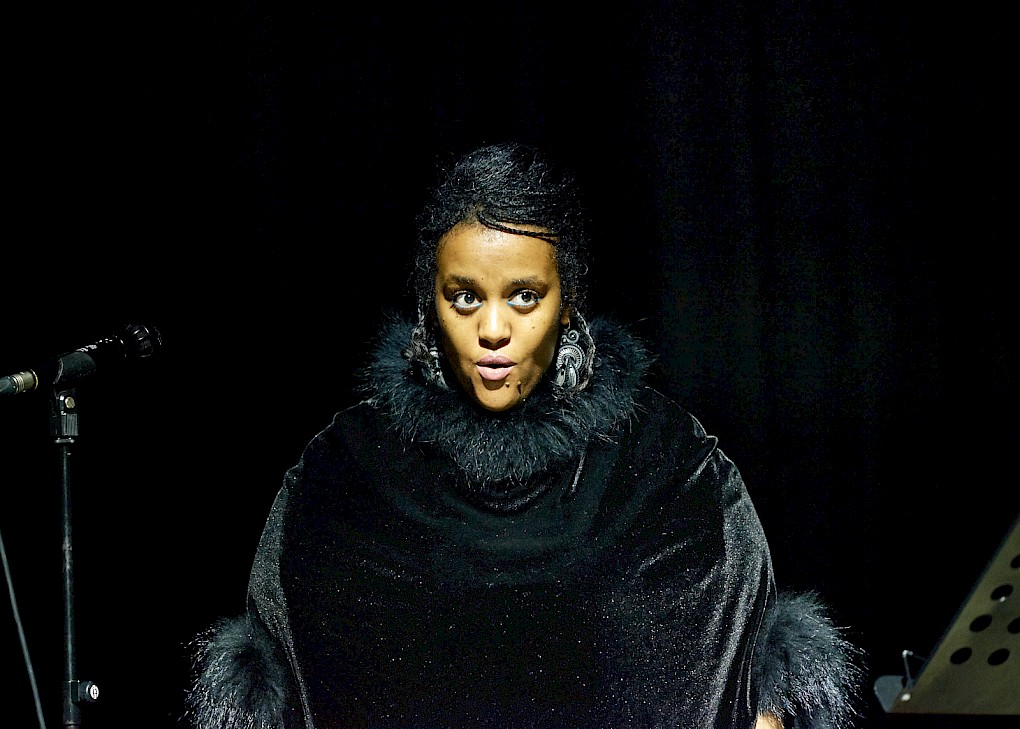
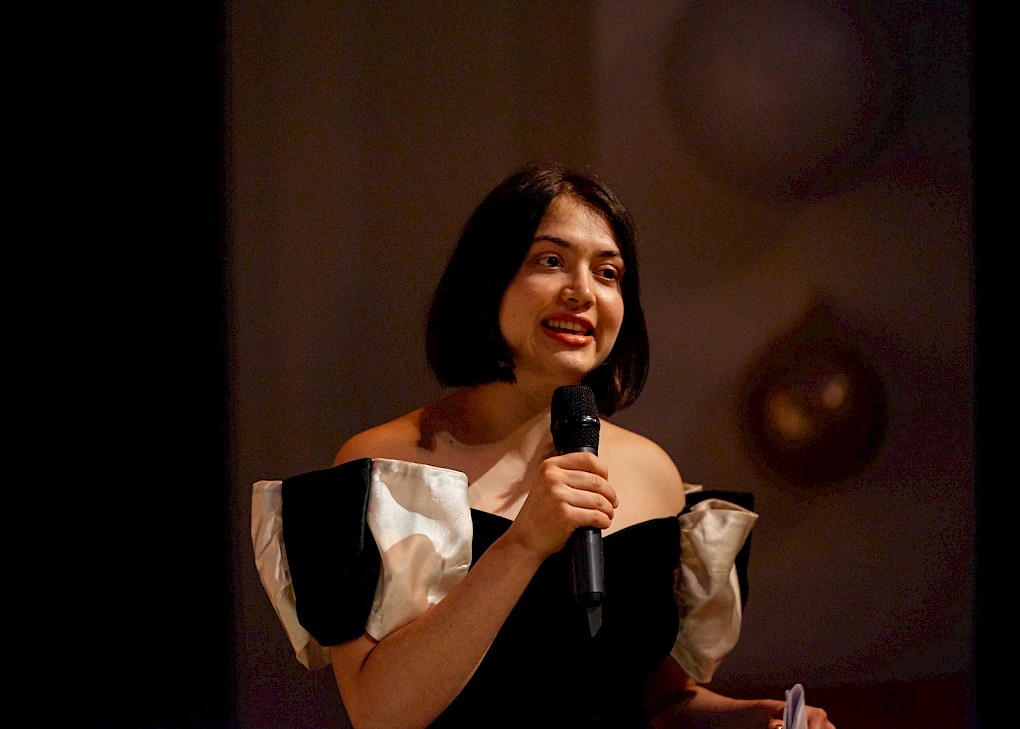
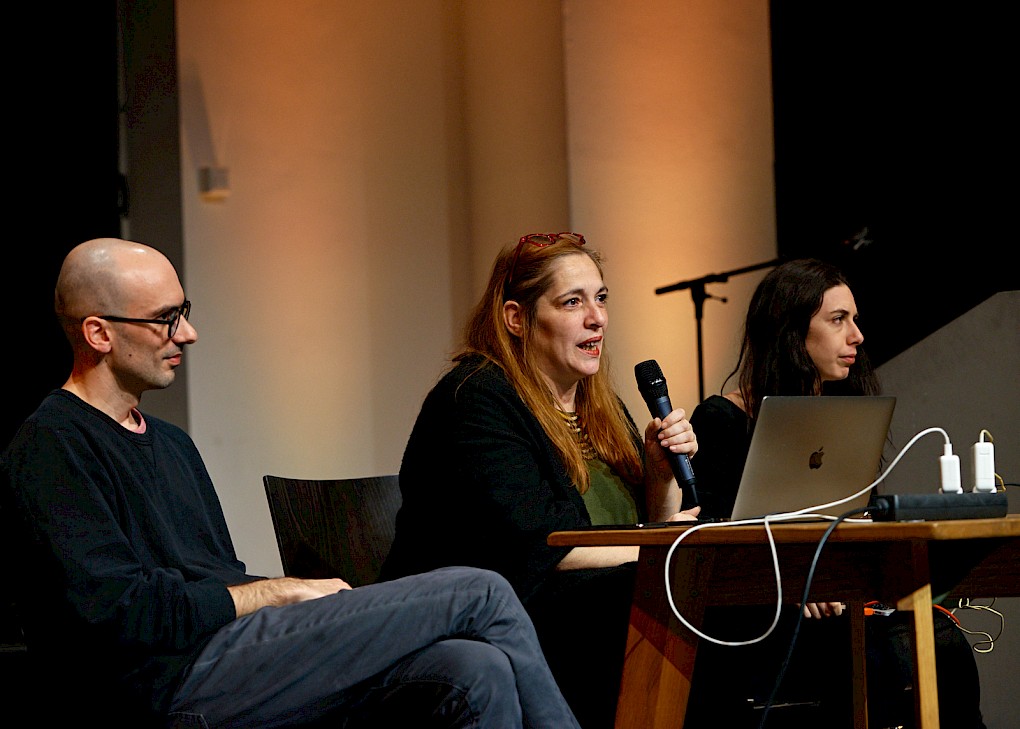
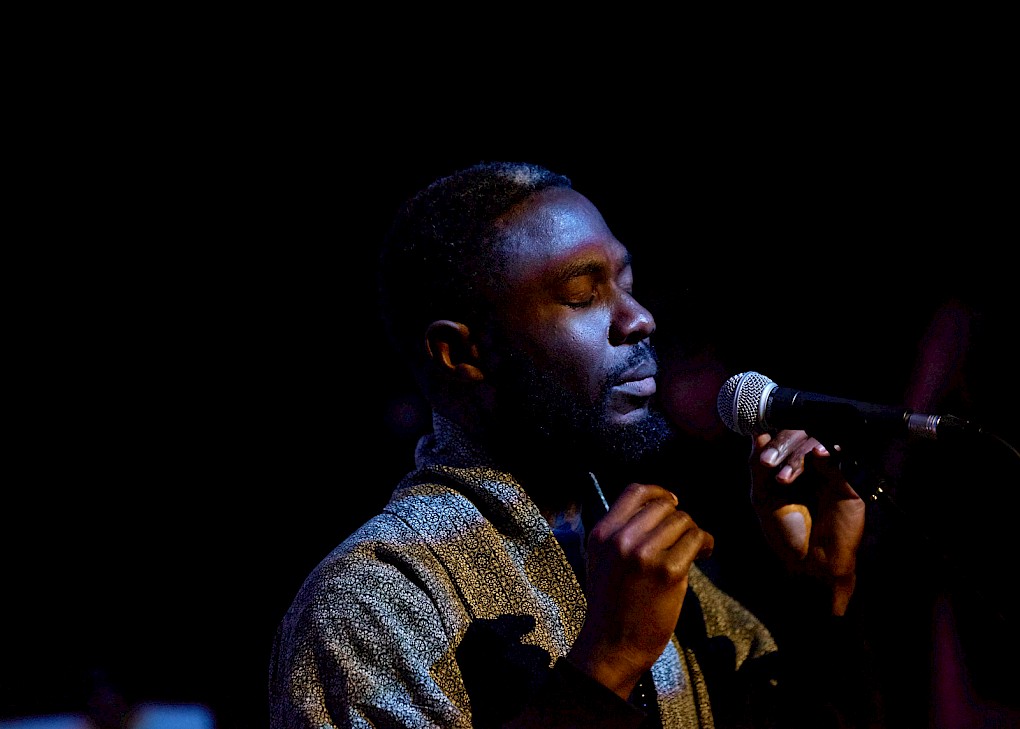
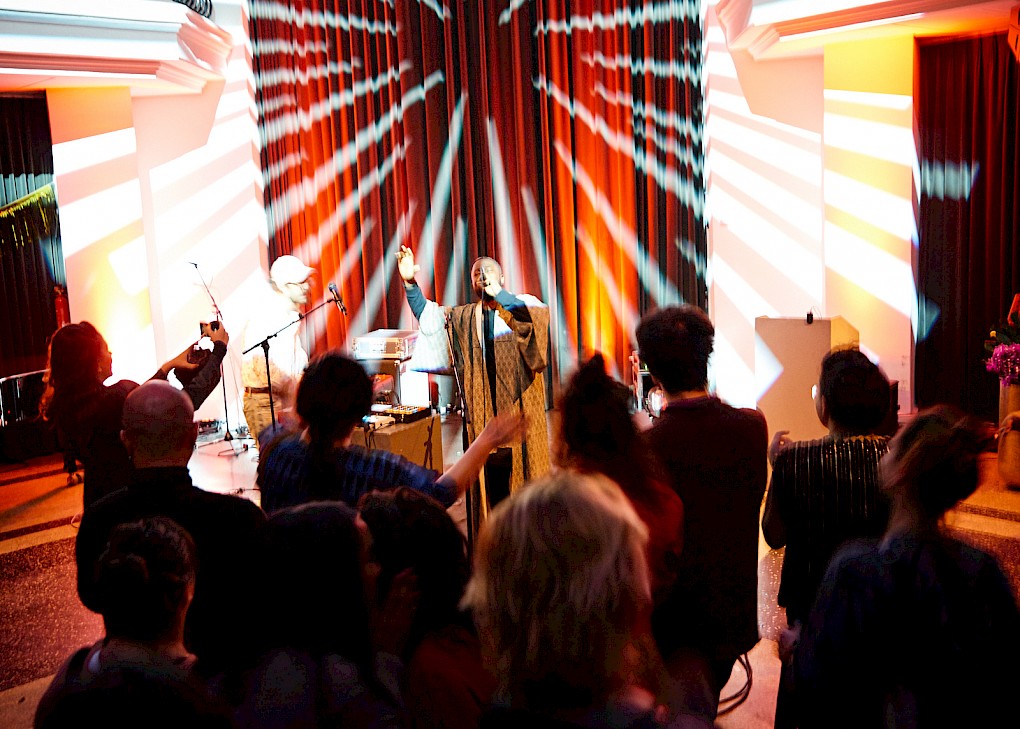
KonZept and Text Anna Jäger mit Kamila Metwaly
Projektteam Antonia Alampi, Anna Jäger, Mahnoor Lodhi, Kamila Metwaly, Ola Zielinska
MANAGEMENT Lema Sikod
KOMMUNIKATION Anna Jäger
Design Elsa Westreicher
Die Verstaltung findet im Rahmen der Langen Nacht der Ideen in Kooperation mit dem Auswärtigen Amt statt: www.menschenbewegen.jetzt.
Die Performance von Llorenç Barber & Montserrat Palacios wird großzügig unterstützt von Acción Cultural Española.
"Why do you fly from me?", Narcissus asks Echo (before she turns into stone), in: Ovid, Metamorphoses
Louis Chude-Sokei (2016), Sound of Culture. Diaspora and Black Technopoetics. Middletown CT: Wesleyan University Press, 73.
Jacques Rancière (2012). “In What Time Do We Live?”, in: The State of Things, ed. Marta Kuzma, Pablo Lafuente, Peter Osborne, London: Koenig Books, 36.
Jacques Rancière, 28.
Tsitsi Ella Jaji. Africa in Stereo: Modernism, Music, and Pan-African Solidarity, 179.
Maha ElNabawi (2013), “Music Permeates Everything”, https://madamasr.com/en/2013/12/15/feature/culture/music-permeates-everything
Wilson Harris, “The Music of Living Landscapes”, in Selected Essays of Wilson Harris (1999), Routledge, 43.
Tsitsi Ella Jaji. Africa in Stereo: Modernism, Music, and Pan-African Solidarity, 179.
Ibid.
George Lamming (1992),The Pleasures Of Exile, 14.
Ulrich Loock. 2012. “Opacity”, https://frieze.com/article/opacity
Édouard Glissant, Poetics of Relation, 93.
Louis Chude-Sokei, 172.
Louis Chude-Sokei in his lecture “How Long Is An Echo?” at HKW Berlin, 26.04.2019.
Ola Abdalkafor (2015). Gayatri Spivak: Deconstruction and the Ethics of Postcolonial Literary Interpretation,Cambridge Scholars Publishing, 78.
Gayatri Chakravorty Spivak (1993), “Echo”, New Literary History, Vol. 24, No. 1, 17–43.
Ola Abdelkafor, 78.
Tsitsi Ella Jaji, 152.
Simone Weil. Gravity and Grace, 51.
Édouard Glissant. Poetics of Relation, 93.
